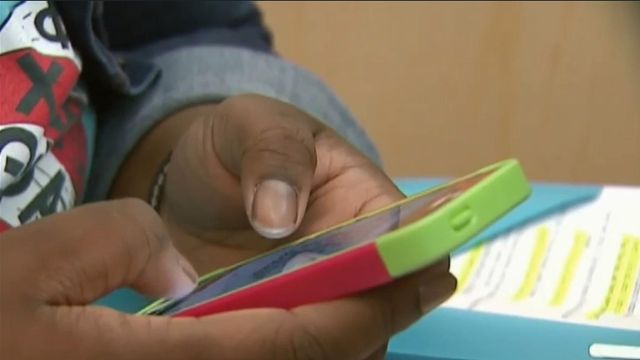Florida House passes legislation that would prohibit kids under 16 from having certain social media accounts
The Florida House of Representatives passed legislation that would prohibit anyone under 16 in the state from holding accounts with certain social media platforms. The bill now heads for Republican Governor Ron DeSantis' desk.
Posted — UpdatedOn Thursday, the House passed House Bill 1 in a vote of 108-7, according to online records. HB1, or Online Protections for Minors, would require some social media platforms to verify the age of account holders, prohibit kids under 16 from creating a new account, and terminate the accounts of anyone they believe to be under 16.
This vote came just hours after the Senate passed the legislation on Thursday morning in a vote of 23-14.
It will now head to the desk of DeSantis, who could sign it or veto it. DeSantis has spoken previously about his beliefs that parents should have a role in this bill.
“As much as I think its harmful to have people on these social media platforms for five or six hours a day, a parent can supervise a kid to use it more sparingly,” DeSantis said in a press conference on Thursday morning.
The governor added that he is working on making sure there is a role for parents in the decision-making process about whether their children should have access to social media. He has also said that parents should have the right to opt in if they want their kids to be on those platforms.
“And I’m a critic of social media, but I have to look at this from a parent’s perspective,” DeSantis added.
The bill’s description of social media platforms that would fall under the requirements appears to be wide-ranging. The bill includes social media companies that allow users to upload content and have at least 10% of its daily active users under the age of 16 spend at least two hours a day on the platform, on average. It also includes companies that use algorithms to analyze data and have push alerts and continuous scrolling or auto-play video.
Kaylee Rochelle teaches 5th graders. She says some of the 10 and 11 year old students have social media.
"In my opinion, the negatives outweigh the positives for children when it’s unsupervised, and they have unrestricted access. Developmentally, they really are not ready for all that they are exposed to," Rochelle said.
The mental health concerns are not exclusive to Florida. Just this week, Wake County Schools announced the district would join a lawsuit against social media companies over student mental health.
Rochelle says student mental health needs to be addressed, but she isn't sure the Florida ban would accomplish that.
"In my opinion, the focus should be more on providing schools and parents with resources to support increasing mental health and social emotional health needs. They should be teaching kids on how to be digital learners and how to be digitally safe and how to make good judgment calls," Rochelle said.
There are plenty of people in support of and against the bill. One mother told WRAL News it's her job to parent her children, not the government.
"I don’t think it should be the government choice on whether somebody can use social media or not. I think it’s up to the individual household. I do know that there is an epidemic of suicide of people in this country but I don’t believe the social media is the only thing to blame for that situation. So I don’t think it should be up to the government to regulate how much time people spend or who gets to go on social media," an anonymous parent said.
The bill was filed on Jan. 5. But it faces an uncertain future.
A federal judge earlier this month temporarily blocked a similar Ohio law that sought to regulate kids’ access to social media platforms, saying that the law is likely unconstitutional.
The order by District Judge Algenon Marbley reiterates what Marbley said last month when he issued an emergency order halting the Ohio law from going into effect. Ohio’s legislation would have required social media platforms to obtain parental consent before creating accounts for children under age 16.
It was the latest blow to states that have vowed a crackdown on social media in the face of mounting claims that the technology contributes to mental health harms.And it highlights the many legal hurdles facing calls to ban social media for young Americans.
CNN’s Brian Fung contributed to this report.
The-CNN-Wire™ & © 2024 Cable News Network, Inc., a Warner Bros. Discovery Company. All rights reserved.
Copyright 2024 by Cable News Network, Inc., a Time Warner Company. All rights reserved.





